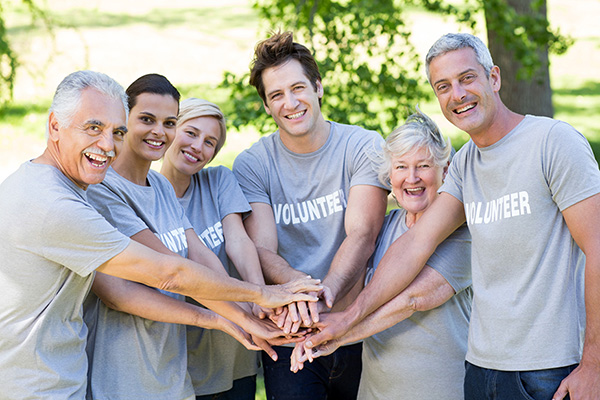friends
Left Holding The Bag
 One of my clients recently said, “I’m the one left holding the bag.” Have you ever been ‘left holding the bag?’ This is when you are put in a situation where you are unfairly held responsible, because other people fail or refuse to take responsibility.
One of my clients recently said, “I’m the one left holding the bag.” Have you ever been ‘left holding the bag?’ This is when you are put in a situation where you are unfairly held responsible, because other people fail or refuse to take responsibility.
The expression “left holding the bag” originated in 18th-century Britain, but at the time it referred to a person being caught with stolen goods, while the rest of their criminal gang escape responsibility.
Many of us are left holding the bag at some point in our life. This is especially true for empaths, healers and highly sensitive people. They are often the scapegoat in their family, or the friend who is taken advantage of, or the coworker who has to pick up the pieces when others neglect their duties.
The solution for this is often found in spiritual self-empowerment, inner child healing, energy shielding, or simply the setting of boundaries. These are challenges I often assist clients with.
A client was about to purchase a bed and breakfast establishment with the support of an investor. When the day came to sign the papers, the investor decided it was just too much to deal with at the time. This left my client ‘holding the bag,’ having to find a new investor.
Another client was abandoned by her siblings when their mother’s mental and physical health suddenly began to deteriorate, and she was left to her own devices having to care for her mom with no assstance or support from the rest of the family.
Using The Mandala In Your Spiritual Practice
 Years ago, I taught a class on sacred geometry. My favorite section of the class was related to using mandalas as a tool for the inward journey and I would like to share this practice with you.
Years ago, I taught a class on sacred geometry. My favorite section of the class was related to using mandalas as a tool for the inward journey and I would like to share this practice with you.
When using a mandala as a form of meditation you begin by creating a large circle. I have always found it easier to start with a graph based on concentric circles, but others start with just a circle and their imagination or intuition. Start at the outer edge of the circle to begin your session and work your way around the outer edge. Gradually work your way to the center of the mandala – this represents the inward journey.
We start by creating patterns and designs on the outside of the circle. This is the largest part of the circle and represents the universe. Understanding the expansiveness of the universe we can feel very small and insignificant, so it is important to move inward to find our grounding within the cosmos.
As we move inward in our mandala we contemplate our planet, then our country or large group of people we identify with the most. For many people this can be a religious tradition. We then move to contemplating our acquaintances, family, and friends.
Towards the center many mandala meditators will create four sides, or a square that leads to the center of his or her mandala. These four sides represent the four cardinal points, South, West, North, and East.
The Key To Happiness Is Self-Care
 The most important thing we can do in life is to take good care of ourselves, because this is the only way we can truly be of service to others. Although this may seem counterintuitive, to be most effective we must take some time to put ourselves first and treat ourselves with more love and kindness. The demands of family, friends, career, business and our community are absolutely necessary to attend to, but the gift of self-care must also be given to ourselves.
The most important thing we can do in life is to take good care of ourselves, because this is the only way we can truly be of service to others. Although this may seem counterintuitive, to be most effective we must take some time to put ourselves first and treat ourselves with more love and kindness. The demands of family, friends, career, business and our community are absolutely necessary to attend to, but the gift of self-care must also be given to ourselves.
People tend to believe they have no time for proper self-care. This is often because they have too many unnecessary, self-assigned duties on their plate. There is no point in worrying about all the things that one cannot effectively change. Some issues should be left to sort themselves out over time. Others are not worth the effort or stress in the greater scheme of things.
The trick is to tell the difference between what is within our control and truly our responsibility, and what can be disregarded or delayed. We must prioritize the issues that matter most, and focus our energy on what we can solve or change. This frees up time for taking better care of yourself.
Regardless of how simple or extravagant our self-care activities might be, it is vital to feel that there is a mini-escape from the pressure-ridden demands of our life. For example, whether it is a quick stretch, or a solid workout, keep your body moving to the best of your ability. It doesn’t take long to feel revitalized, so make the most of whatever time you have.
How To Stay Focused On Your Goals
 Staying focused on our personal goals can be challenging in today’s fast-paced world. With constant demands on our time and energy, including many distractions and obstacles, it is easy to lose sight of our dreams and become overwhelmed. Commitments to employers, family, friends, and community sometimes leave us little time to reflect on how changing our lives can serve our highest good. The answer to this is to cultivate the right mindset and lifestyle strategies.
Staying focused on our personal goals can be challenging in today’s fast-paced world. With constant demands on our time and energy, including many distractions and obstacles, it is easy to lose sight of our dreams and become overwhelmed. Commitments to employers, family, friends, and community sometimes leave us little time to reflect on how changing our lives can serve our highest good. The answer to this is to cultivate the right mindset and lifestyle strategies.
To begin with it is possible to remain focused and achieve success by developing a positive mindset. Positive thoughts and self-empowering beliefs build our mental resilience and help us overcome challenges more easily. It’s also beneficial to cultivate a growth mindset that enables us to view challenges as opportunities for growth and learning, rather than setbacks.
Another critical aspect of remaining focused on our personal goals is having a clear vision of what we want to achieve. Taking the time to set goals that are specific, achievable and measurable creates a clear roadmap for success and staying on track. It’s also essential to break larger goals into smaller, more manageable tasks, which can help us stay motivated and focused.
Most of all it is vital to prioritize both spiritual and personal self-care. Just taking a few minutes daily to realign and renew our energy can reduce stress, improve health and vitality, and enhance our ability to think creatively. Taking care of our physical, emotional, and spiritual needs can help us stay grounded and focused, even in the face of personal challenges. Make some time for regular exercise, prayer, meditation, journaling, outdoor recreation, or whatever endeavor is a source of joy and renewal for you.
The Karmic Purpose Of Reincarnation
 Do we reincarnate? I know from both personal and professional experience that we do. I also believe we continue to do so, until we have learned all the necessary lessons bestowed upon our soul. We also carry over karmic debt from one life to the next, which we must deal with before we can finally transcend and not return to another lifetime in this world.
Do we reincarnate? I know from both personal and professional experience that we do. I also believe we continue to do so, until we have learned all the necessary lessons bestowed upon our soul. We also carry over karmic debt from one life to the next, which we must deal with before we can finally transcend and not return to another lifetime in this world.
Sometimes we experience clear signs and evidence of reincarnation in our daily lives. The most common is meeting a stranger and instantly knowing deep in your soul that you have known them before in another lifetime.
We also witness this in our families and among our friends. I have seen traits and mannerisms of my grandfather, who passed when I was young, in my son who is now an adult. It always makes me smile, as I know where he’s coming from.
I have also come across several people I have known in another life. Sitting in meditation, I have been shown the capacity in which we were connected before. In a past life regression, I have seen how one of my best friends was an archenemy in a past life.
Some people have unusual memories from another time, or a place they have never been, or they often experience déjà vu. Another sign of reincarnation is having recurring dreams about people and places not related to your waking life. Or strongly identifying with a foreign country or culture, or a particular period in history.
Stop Surviving And Start Living
 The past three years, I have heard many people say they’re living in ‘survival mode.’ For some it has been about health and personal safety, for others it was isolation and loneliness, or bereavement and grief, or loss of employment and financial security.
The past three years, I have heard many people say they’re living in ‘survival mode.’ For some it has been about health and personal safety, for others it was isolation and loneliness, or bereavement and grief, or loss of employment and financial security.
It has certainly been an unprecedented, challenging time for our generation. And at times it has indeed been an actual fight for survival, which many tragically did not survive. Many families are still grieving the loss of their loved ones.
Sadly, for some it has also been a time of fearing many things that never happened. It has also been a time that revealed how some folks may be in need of a major ‘privilege check.’ For example, I personally know people who were excessively anxious during the quarantine lockdowns because they were eating too much and gaining weight, or were upset because they could not go to the salon or spa, while there are people in the world who were not even able to feed their families, or worse, had nowhere safe to take shelter.
The global pandemic has indeed been a unique opportunity to reflect on our beliefs, values, and what truly matters to us. Not everyone made the most of this prospect. It seems for some it is still difficult to move beyond the self-defeating mindset of ‘it’s a struggle to survive.’
Yes, life is sometimes definitely hard for all of us. The past three years proved that once again on a global scale. Life can throw major curve balls our way and we all handle things through our personal lens on the world. Some of us are more resilient than others; and some of us more privileged than others. Being in ‘survival mode’ is therefore relative to the individual.
